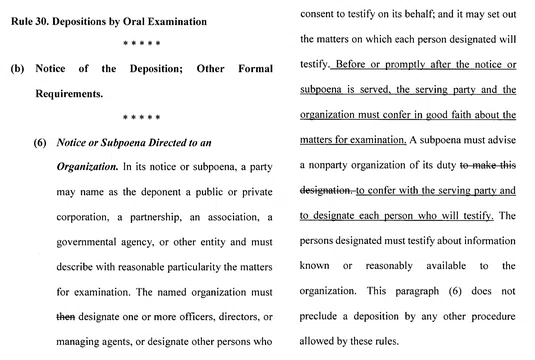
Depositions have been especially hard during the pandemic. Luckily, the quick proliferation of Zoom and its competitors have made it possible to take remote depositions that roughly approximate the experience of angrily objecting across a conference table.
International depositions, however, have remained problematic. In the past, witnesses could simply be shuffled from a country with hugely restrictive deposition procedures to a more friendly jurisdiction -- be it the Netherlands, the UK, a consulate, or even beautiful Delaware.
Travel restrictions and the closing of consular offices have made this a non-starter in many cases and so there has been a bit of a resurgence in proceedings under the Hague as parties struggle to get what discovery they …

